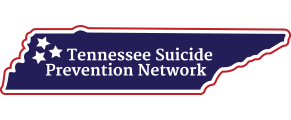No one experiences depression the same way as someone else. Understanding the signs, symptoms and side effects of depression is a key component toward starting the recovery journey.
Understanding Depression
Learn about depression
Depression in teenagers is a very serious medical problem that leads to long-lasting feelings of sadness along with a loss of interest in once enjoyed activities. Teen depression affects the way a teen thinks, feels, behaves, and can lead to significant emotional, functional, and physical problems. While depression and other mood disorders may occur at any time in life, the symptoms of depression experienced by teens may be different than those experienced by adults with depression.
There are a lot of ups and downs involved in being an adolescent. Pressure from peers, expectations of high academic achievement, or hormones associated with puberty will naturally bring about mood swings. However, teens who have clinical depression will feel the lows as more than temporary states. Having depression as an adolescent or teen isn’t a sign of weakness or something that can be overcome by toughing it out – teenage depression can lead to severe consequences and needs life-long treatment. While a teen experiencing depression may feel there’s no way out, the good news is that depression in teens is usually managed well with a multimodal treatment approach including counseling, various therapies, and medication management.
Statistics
Depression statistics
Depression is one of the most prevalent mental health disorders in the United States and worldwide. According to the World Health Organization (WHO), major depressive disorder is the leading cause of disability for people in the United States aged 15 to 44. Recent estimates are that about 10 to 15% of children, adolescents, and teens experience depression at any given time. Research indicates that 1 in every 4 adolescents will experience an episode of major depression during high school, with the average age of onset being 14 years of age.
Causes and Risk Factors
Causes and risk factors for depression
While it was once believed that children and teens could not develop depression, we now know that depression can develop at any age. It’s considered unlikely that depression is caused by a single factor; rather it’s believed that depression is caused by a number of genetic, physical, environmental factors interplaying with a number of risk factors. These include:
Genetic: Depression tends to run in families. Teens who have a close family member, such as a parent or sibling, who has depression are more likely than their peers to develop this disorder. However, there are a number of adolescents who develop depression without a family history.
Physical: Neurotransmitters, naturally-occurring chemicals in the brain responsible for many actions and are likely to play a role in depression. When neurotransmitters are out of balance, it can lead to depressive symptoms. Additionally, changes in hormones may trigger depression.
Environmental: Teen depression may be linked to a feeling of learned helplessness; that these teens are helpless to find solutions to the challenges in life. This behavior may be learned though modeling by a parent or caregiver.
Risk Factors:
- Being female
- Early childhood trauma
- Bullying
- Loss of a parent
- Low self-esteem
- Chronic medical illness
- Physical, sexual, or emotional abuse
Signs and Symptoms
Signs and symptoms of depression
The signs and symptoms of depression in teens do vary from person to person based upon individual temperament, presence of co-occurring disorders, and usage of substances. While it can be challenging to determine what is normal teen behavior and teen depression, early identification and treatment can prevent future complications.
The most common signs and symptoms of teen depression include:
Behavioral Symptoms:
- Poor scholastic performance
- Increased school absences
- Agitation
- Restlessness – pacing, handwringing
- Use of alcohol or drugs
- Disruptive behavior
- Increased risk-taking behavior
- Decreased motivation
- Loss of interest in once-pleasurable activities
- Increased time spent alone
- Decreased social interactions
- Increased conflict in interpersonal relationships
Physical Symptoms:
- Sleeping too much
- Insomnia
- Lack of energy
- Changes in appetite
- Weight loss or gain
- Neglected appearance
Cognitive Symptoms:
- Challenges with short-term memory
- Trouble thinking clearly
- Trouble making decisions
- Difficulty paying attention
- Slowed thinking, speaking, or movements
Psychosocial Symptoms:
- Feelings of sadness
- Feelings of worthlessness
- Inexplicable guilt
- Fixation on past failures
- Exaggerated self-blame
- Increased self-criticism
- Extreme sensitivity to rejection or failure
- Need for extreme amounts of reassurance
- Unexplained crying spells
- Feelings of anger – even over insignificant matters
- Ongoing feelings that life and the future are grim, bleak, hopelessness
- Self-harm and self-mutilation
- Suicidal ideation
Effects
Effects of depression
Many teens do not seek or receive treatment for their depression, which may lead to increased problems later in life. If you or your teen is struggling with depression, it’s vital to seek treatment.
The long-term effects of untreated teenage depression include:
- Low self-esteem
- Alcoholism and substance abuse
- Academic problems and failure
- Difficulties with family conflicts and other relationships
- Social isolation
- Involvement in the legal system
- Self-harming behaviors
- Suicide
Co-Occurring Disorders
Depression and co-occurring disorders
Many times, depression in teens exists with another type of mental disorder. The most common disorders that co-occur with teen depression include:
- Anxiety disorders
- Anorexia nervosa
- Attention-deficit/hyperactivity disorder (ADHD)
- Learning disabilities
- Substance addiction
- Alcoholism











